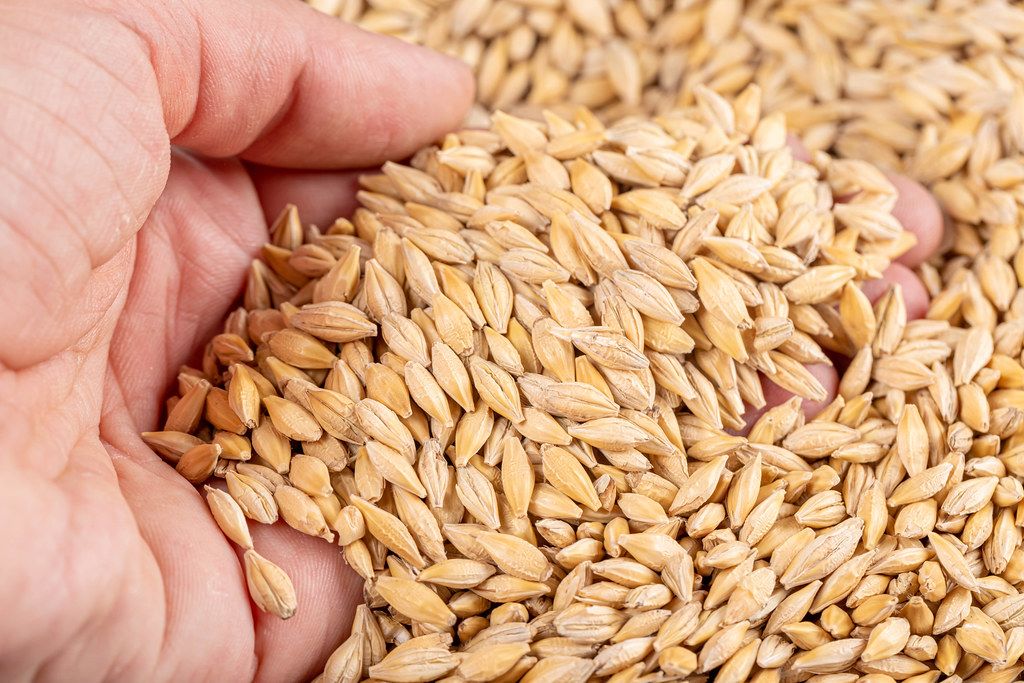Introduction:
When it comes to gluten-free diets, understanding which grains are safe to consume is essential. Barley, a commonly used grain, raises questions about its gluten content and suitability for individuals with gluten sensitivities or celiac disease. In this comprehensive guide, we will explore the topic of whether barley is gluten-free, including its composition, potential health implications, and alternatives for those following a gluten-free lifestyle.
Understanding Gluten:
To assess the gluten content of barley, it is crucial to understand what gluten is. Gluten is a mixture of proteins found in wheat and related grains, such as barley, rye, and triticale. It provides elasticity to dough, helping it rise and maintain its shape. However, gluten can be problematic for individuals with celiac disease, an autoimmune disorder triggered by the ingestion of gluten. People with gluten sensitivity may also experience adverse symptoms when consuming gluten.
Barley’s Gluten Content:
Barley does contain gluten. In fact, it is one of the primary grains that individuals with celiac disease or gluten sensitivity must avoid. The gluten proteins in barley can cause damage to the small intestine in people with celiac disease, leading to various health issues and nutritional deficiencies. Even small amounts of gluten can trigger adverse reactions in sensitive individuals, making it crucial to exercise caution when consuming barley or barley-derived products.
Potential Health Implications:
Consuming gluten when you have celiac disease or gluten sensitivity can lead to severe health implications. Some of the common symptoms of gluten ingestion in individuals with celiac disease include gastrointestinal discomfort, diarrhea, bloating, fatigue, and nutrient deficiencies. Long-term consumption of gluten in these individuals can cause malabsorption, weight loss, anemia, and even increase the risk of certain cancers. Therefore, it is crucial for people with gluten-related disorders to strictly avoid barley and other gluten-containing grains.
Alternatives to Barley:
If you are following a gluten-free lifestyle or have celiac disease or gluten sensitivity, there are several safe alternatives to barley. These grains are naturally gluten-free and can be incorporated into various recipes:
- Quinoa: A highly nutritious grain-like seed that is versatile and protein-rich.
- Rice: A staple grain that is widely available and can be used in various dishes.
- Buckwheat: Despite its name, buckwheat is not a type of wheat and is gluten-free.
- Amaranth: An ancient grain that is high in fiber, protein, and essential minerals.
- Millet: A small grain with a mild flavor that can be used in porridge or as a side dish.
- Corn: Corn and cornmeal are gluten-free and can be used in a variety of recipes.
It’s important to note that when purchasing alternative grains, it is essential to ensure they are labeled as gluten-free, as cross-contamination can occur during processing.
Hidden Sources of Barley:
While it may seem straightforward to avoid barley, it can sometimes be an ingredient in processed foods or hidden under different names. When reading labels, be cautious of the following terms that indicate the presence of barley:
Malt: Barley malt or malt extract is commonly used in cereals, malt vinegar, and some alcoholic beverages.
- Maltodextrin: This additive is derived from starch, and it can be sourced from barley.
- Brewer’s yeast: Although brewer’s yeast is often gluten-free, it’s important to ensure it hasn’t been derived from barley.
- Hydrolyzed vegetable protein (HVP): HVP can be made from various plant sources, including barley.
- Food coloring: Some caramel colorings may contain barley.
- Always read food labels carefully and, if uncertain, contact the manufacturer for clarification.
Conclusion:
In conclusion, barley is not gluten-free and should be avoided by individuals with celiac disease or gluten sensitivity. Consuming barley or barley-derived products can lead to severe health implications and worsen the symptoms of gluten-related disorders. Instead, opt for gluten-free alternatives such as quinoa, rice, buckwheat, amaranth, millet, and corn. When following a gluten-free diet, always be vigilant about hidden sources of barley in processed foods. By making informed choices and selecting gluten-free grains, individuals can maintain a healthy and balanced diet while managing their gluten-related conditions effectively

